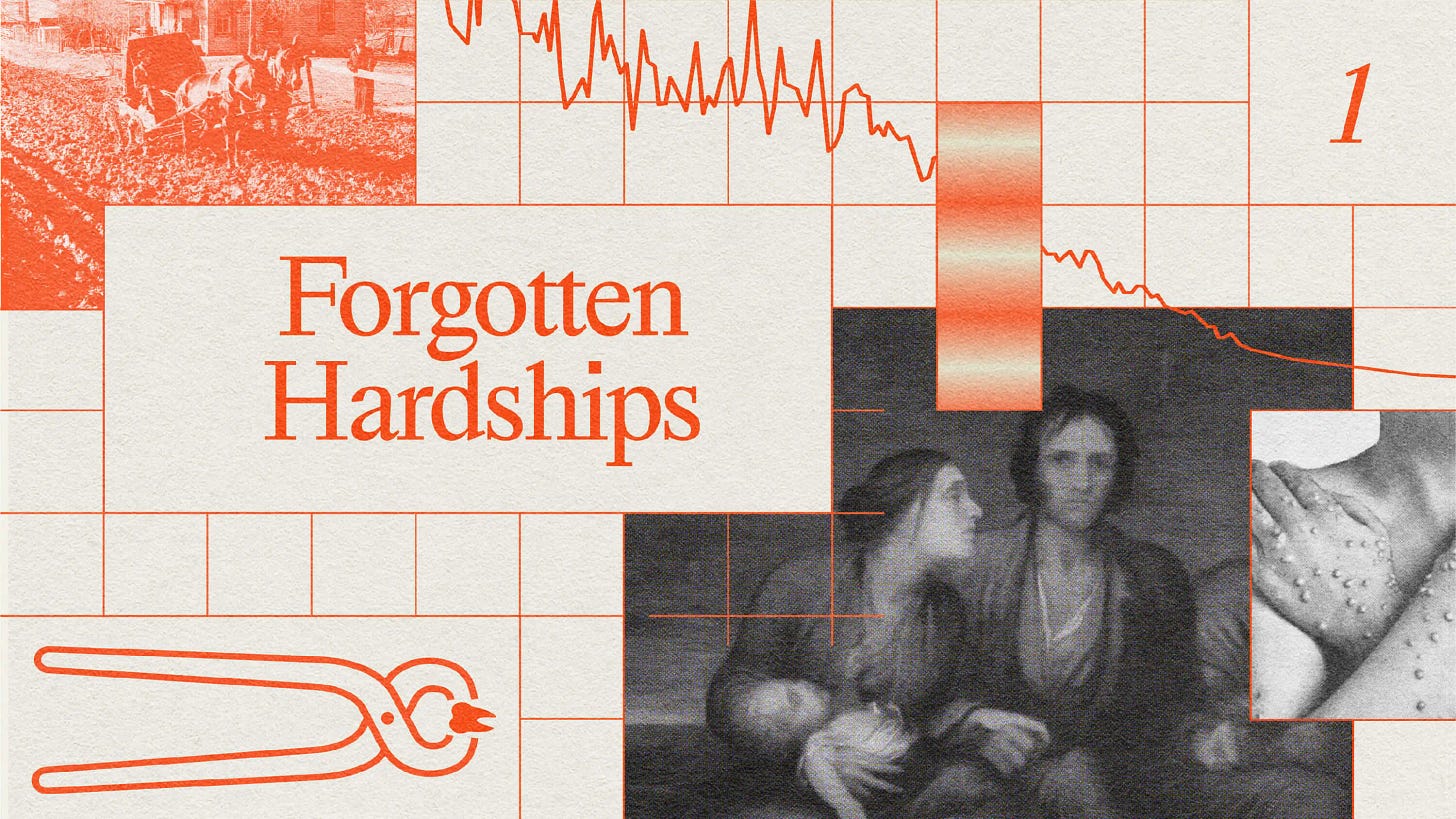Hey Freethinkers,
Happy New Year's Eve! With 2025 right around the corner, we’re taking a look back at some of our favorite stories from the past year — from tech trends that could end world hunger to the biggest “firsts” in space flight to a “Robotic Blacksmith Army” in California. I hope you enjoy!
Onwards,
Stephen
HARD RESET
Former SpaceX engineer invents a “Robotic Blacksmith Army”
Fighter jets are some of the most powerful and most complex machines ever created. They are the key to America’s national defense, but they can take years and countless hours of skilled labor to repair. This engineer believes “roboforming” could totally transform maintenance and manufacturing in the 21st century — and fix fighters with the click of a button.
FREETHINK VOICES
Life was dirty, difficult, and dangerous for almost everyone who ever existed
by Jason Crawford // Jason Crawford
It may seem odd that progress needs a defense but industrial civilization has become a victim of its own success. It has solved the problems of daily existence so thoroughly that the solutions (and even the problems) fade from our collective memory. We live in an amazing world, and we should stop taking it for granted.
THE FREETHINK INTERVIEW
Chip Wars: Why Taiwan is the most important country in the world
with author and professor Chris Miller // @crmiller1
It’s simpler to make a nuclear bomb than a modern semiconductor. Nine countries today have nukes, but all rely on a single country — and, in fact, a single company — for their most advanced microchips. Taiwan’s dominance of the supply of advanced chips is near the heart of a brewing conflict between China and the US, with profound effects on trade, technology, and geopolitics.
FUTURE EXPLORED
Boosted Breeding and beyond: 3 tech trends that could end world hunger
World hunger has plummeted over the last half century, driven by growing economies and innovations in agriculture. But the headwinds for feeding the world are picking up, with soil degradation, climate problems, and risks to global supply chains making it harder to continue the positive trends of the Green Revolution. But new technologies are being developed that are poised to supercharge plant growth, making food not just more plentiful but more nutritious — and delicious.
T-MINUS
T-Minus: Counting down the 10 biggest "firsts" in space exploration
Until 1957, all that humans could do in space was look. That changed abruptly and forever with the launch of Sputnik 1, the world’s first artificial satellite. Since that moment, which kicked off human space exploration, many more incredible “firsts” have piled up. In this special edition of T-Minus, Kristin Houser counts down the top 10 biggest ones, and it makes you wonder what we’re going to see and do up there, for the first time, next.
WORTH SHARING
Why does it feel like the world is falling apart?
Political scientist Dr. Brian Klaas explains the mechanics of living in a "black swan era."
Dr. Brian Klaas explains how humanity has gone from the “local instability and global stability” of hunter-gatherer times to a world where we now experience local order but global chaos. This shift, shaped by complex systems and non-linear dynamics, shows how tiny changes can trigger massive disruptions—and why clinging to outdated models leaves us exposed to the unpredictable.
Stephen Johnson is the managing editor at Big Think and a writer at Freethink.













